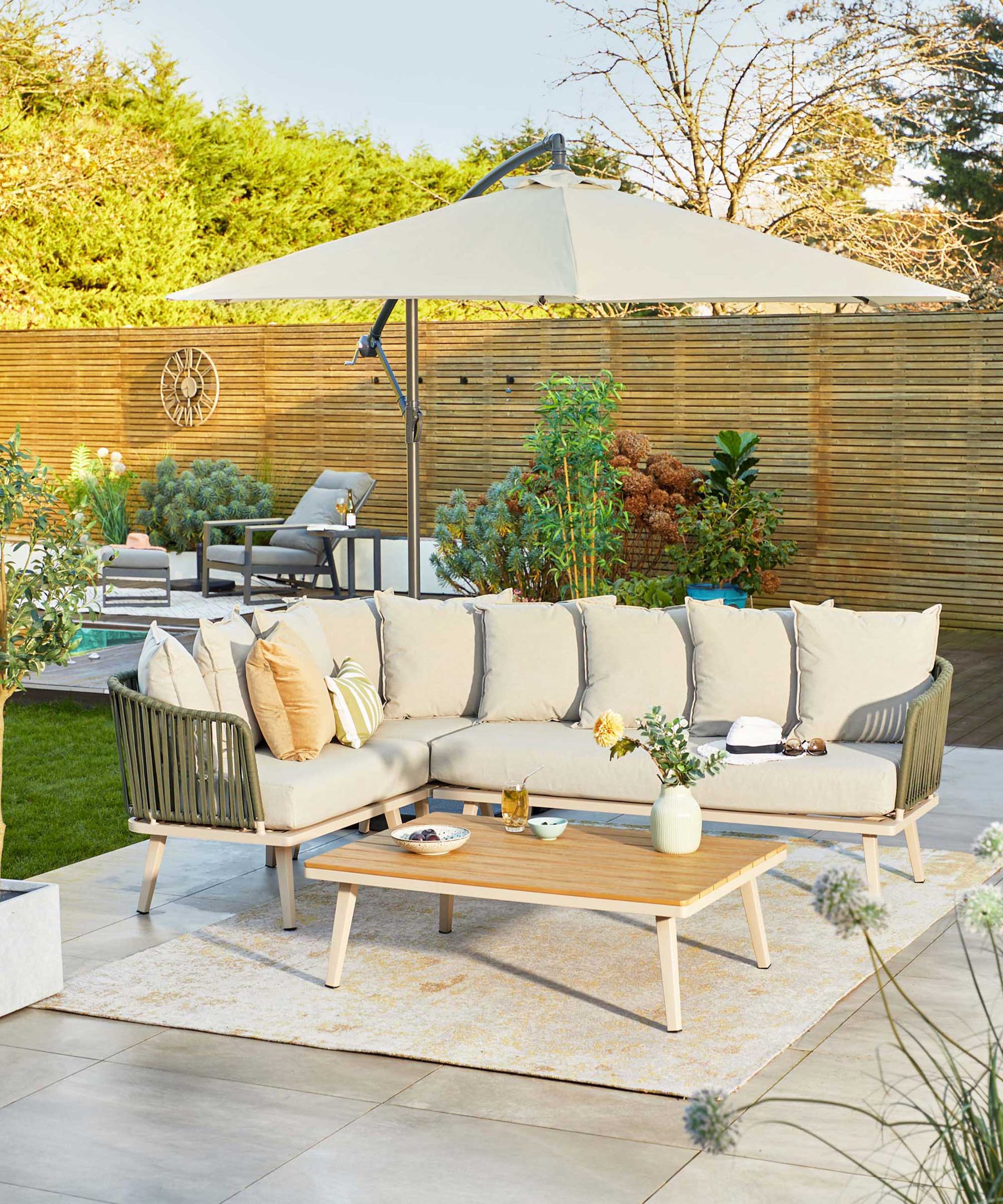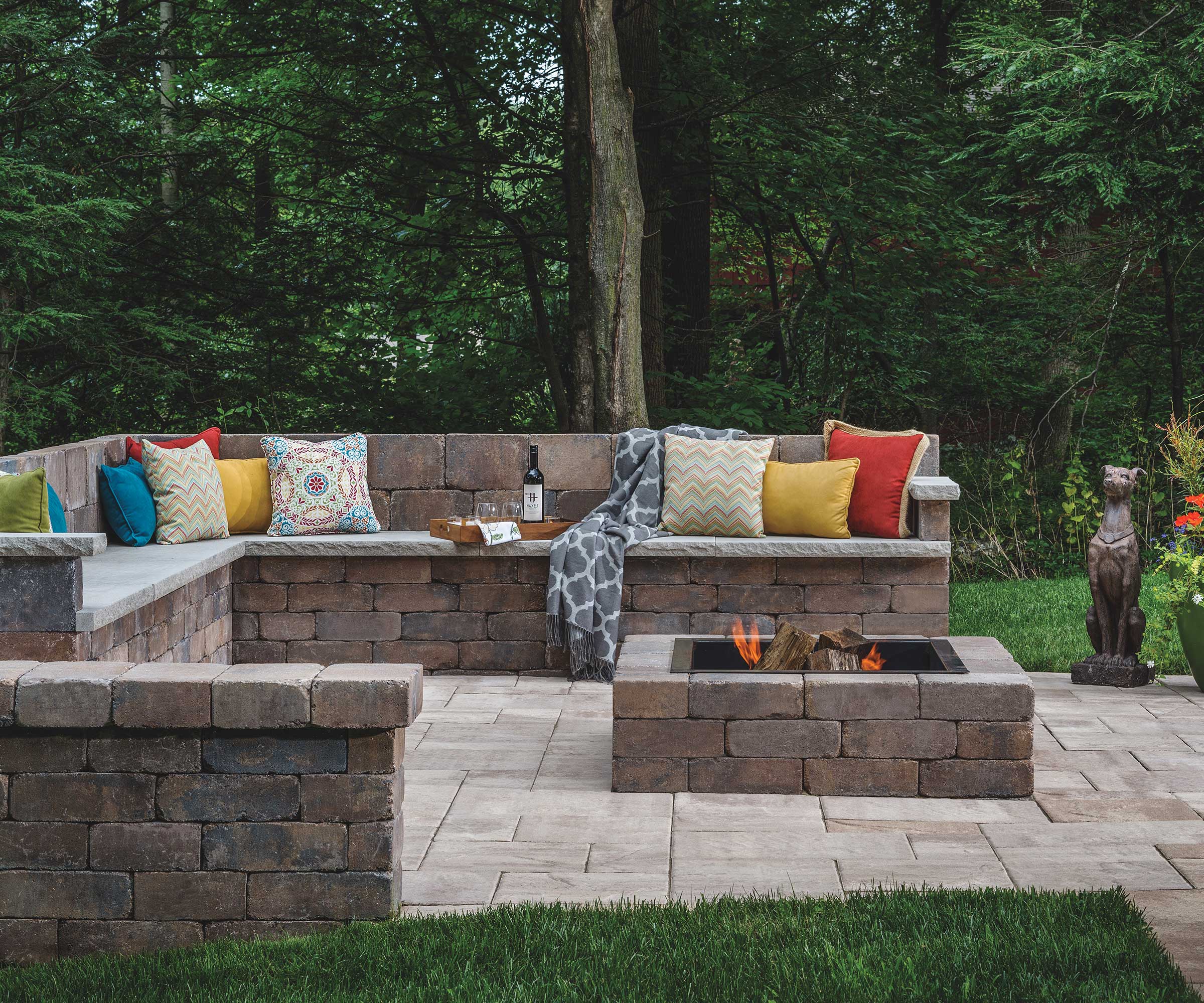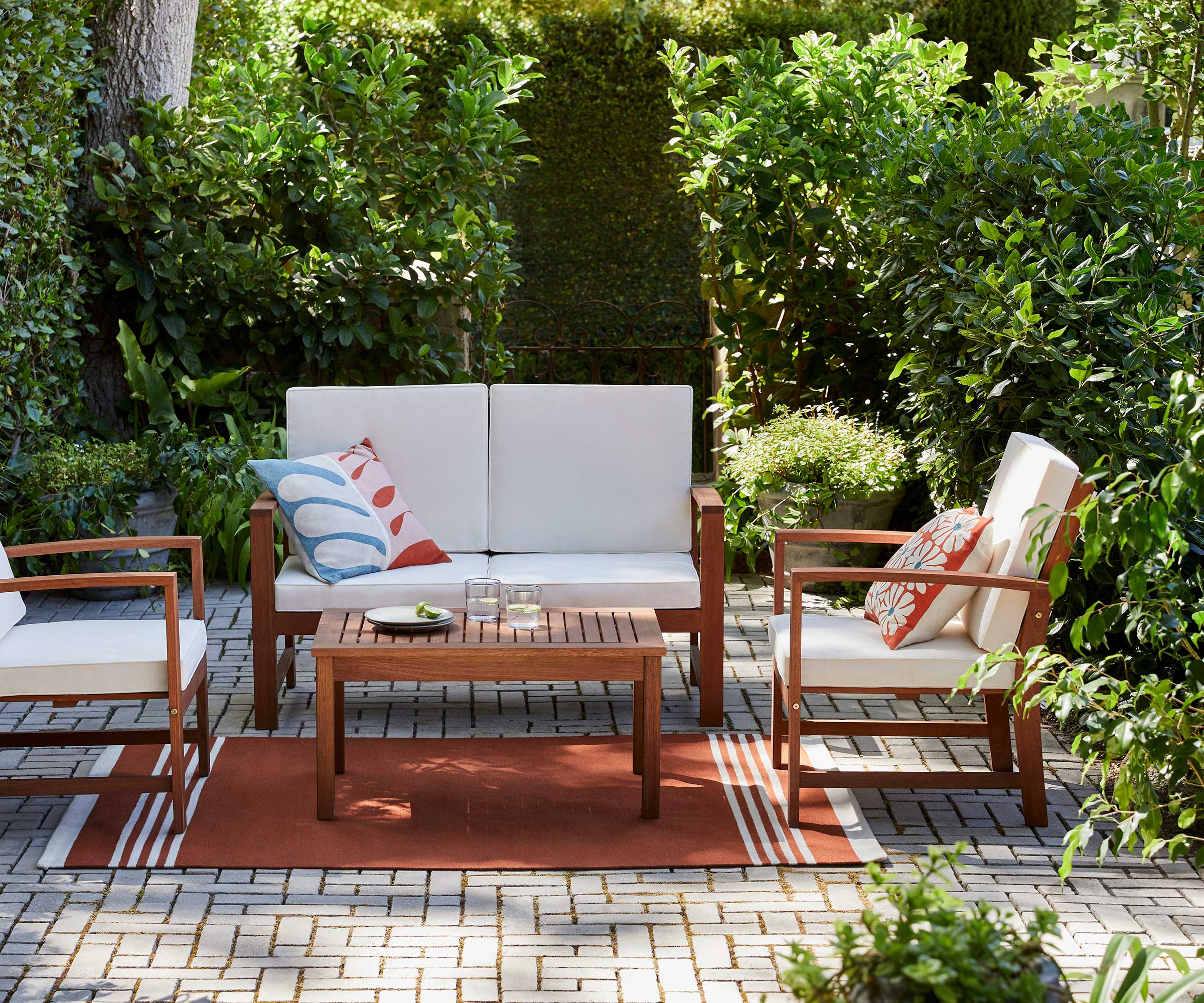
Creating a new outdoor living area is exciting, but if you don't proceed with careful consideration, there are some patio mistakes that are easily made. The results of such errors can range from frustrating to disastrous, and spoil not only the overall look but also its practicality.
A patio that doesn't function as it should is a waste of time, money and space. Worst-case scenario, you'll either never use it or you'll need to rebuild it – and they're not the cheapest to install in the first place.
But by designing your patio well, bearing some key factors in mind, your project is much more likely to be the success you envisioned. It will soon become the social hub of your backyard, and you'll be able to enjoy it for years to come.
5 patio errors often made by homeowners – and what you should do instead
I spoke to landscaping and home-improvement experts who shared their insights on patio mistakes to avoid.
1. Forgetting about the sun
Do you love to soak up the sun or would you rather stay cool in the shade? Perhaps you'd like a space to enjoy the last of the evening light with a glass of something chilled, or you'd rather have a sunny alfresco brunch spot. Whatever the case, it's something to bear in mind when planning where to install your patio. 'One of the biggest mistakes we see is that homeowners forget to consider where the sun hits during the day,' says Joe Raboine, the Vice President of Design at Oldcastle APG, the parent company of Belgard.
So, note the path of the sun on your plot, and decide how you wish to utilize it. If you want to put your patio somewhere that makes the very most of those rays, you could consider adding a louvered pergola for a spot of respite when needed.
Top tip: Moss on patios is encouraged by shaded, damp conditions, so ensure your patio gets plenty of sunlight and airflow if you'd rather avoid this.

2. Choosing the wrong materials
'Another mistake homeowners make when building a patio is not considering materials,' says Alex Capozzolo, the Co-Founder of SD House Guys. 'Although cost may be a factor in choosing which material to use, it is also important to ensure that the material you choose will both look good and stand up to the elements.
'Wood, stone, and concrete are all popular choices for patios because they are durable and cost-effective. Research which material would best suit your needs before making a decision.'
Scott Chambers, a Content Editor of BuildEazy, agrees that it's important to choose a material that is durable and weather-resistant, adding that it should complement your home's exterior, too. By carefully choosing materials with colors and textures that harmonize with other existing features around your space, you can create a more cohesive and stylish scheme.
Whether you're choosing backyard paving or decking, the ease of maintenance should be accounted for, as Alex notes. 'Depending on the material you choose, cleaning and maintenance may be required at least a few times a year,' he says. You'll also want to check whether the material is non-slip. This is particularly crucial in rainier regions or if you're installing your patio around a pool.
A final point: think about drainage. Some materials are more permeable than others, reducing the risks of rainwater puddling on your patio. If opting for non-permeable materials, ensure there are other ways to channel water away from the space responsibly.

3. Installing a patio that's the wrong size
Scott Chambers warns against making your patio either too small or too big. 'If it's too small, it may not be functional or aesthetically pleasing, and if it's too big, it may take up too much space or be too expensive to maintain.' Not to mention it will be much tougher on the wallet to install.
To avoid this, ensure you've drawn up a to-scale plan of your plot first, and really think about how much space you need for the area.
Consider the patio furniture you want to include and its dimensions, allowing enough space around each piece so that people can move around easily, too. And remember, if you plan on including a fire pit, you'll need to make sure it's not too close to your seating. Don't forget about any patio planting ideas you want to include, too – ensure there's room for the containers.

4. Overlooking the power of lighting
Lighting is a small addition that can make an impact on both the experience and functionality of a patio, says Joe from Belgard.
Layering is key to a successful patio lighting scheme. 'Consider hardscape lights to illuminate from the ground up to create a soft feature that also adds a safety measure to the space,' says Joe. Think recessed spotlights in paving and strip lights tucked beneath step treads.
Wall lights are another practical option that can look super stylish, while accent outdoor lighting such as solar lanterns (we love these decorative ones from Terrain) and festoons will up the ambiance. If you have planters on your patio, consider adding spotlights into the soil, too, to illuminate the plants and create drama when night falls.

5. Not hiring a pro
To keep down costs, you may be tempted to build a patio yourself. However, unless you have experience with hardscaping, it's probably best to hire a professional.
'DIY is not always the best option when it comes to installing a patio,' says Joe Raboine. 'Installing materials such as hardscapes is challenging, depending on the project’s size and scale. The bulk of the work is in the movement and placing of the materials, which requires proper knowledge and tools. Consider hiring a professional for help with design and installation, as they can also provide ideas on how to maximize the space or offer new design ideas.'
Alex Capozzolo agrees: 'While it may be tempting to try to complete the project yourself, consulting professionals can help ensure that your patio is built correctly and safely. Seeking out professionals who are experienced in building patios can save you time and money in the long run, as well as provide you with expert advice and knowledge.'
Joe also notes how some contractors now have access to an incredible amount of satellite imagery and mobile applications that allow them to gather information without having to step foot on the property to take measurements. 'Virtual design companies and materials manufacturers are partnering together to bring technology and product selection together in one place. So, if you’re planning a larger scale project, consider enlisting one of these services.'
A patio can transform a backyard and extend your living space, opening up endless possibilities for alfresco entertaining and relaxing. But as with any home improvement, it pays to plan properly before getting stuck in with the installation – the results will be much better for it.







